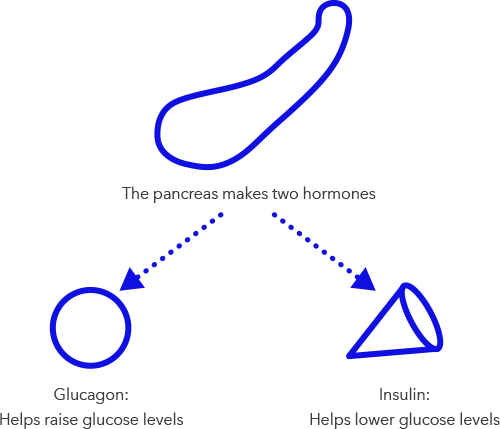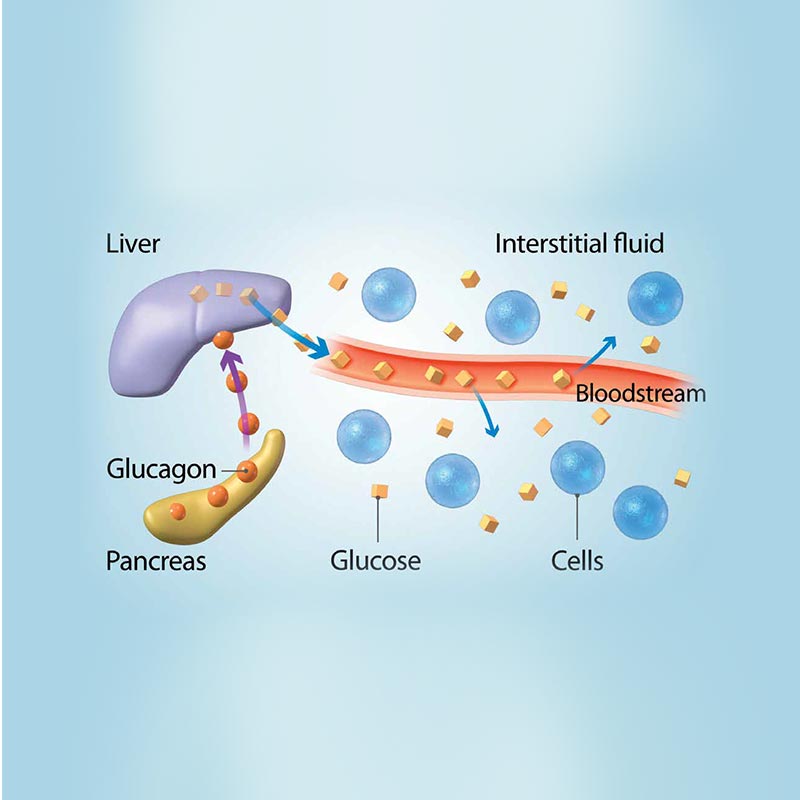Glucagon
Glucagon is a hormone produced by the pancreas. The pancreas communicates with the liver by making two hormones, insulin and glucagon. Insulin lowers glucose levels and glucagon raises them.

The glucose and insulin balance
Prior to having diabetes, your pancreas and liver worked together using a check and balance system to keep your insulin and glucose levels in range. Your pancreas would tell your liver when too much or too little glucose was in the blood. Your liver would then store or release glucose as your body needed it.

Glucagon’s role
When a healthy functioning pancreas senses that glucose levels are beginning to drop below the average range, it increases its production of glucagon (and decreases its production of insulin).
Glucagon alerts the liver to release some of the glucose it has stored back into the bloodstream. As the liver releases stored glucose back into the bloodstream, blood glucose levels begin to rise. As blood glucose levels rise and return to the average range, the pancreas decreases its production of glucagon.
Glucagon helps to keep glucose levels in balance by signaling the liver to release stored glucose back into the bloodstream. The release of stored glucose prevents low blood sugar from occurring.
Glucagon emergency kit
Everyone who takes insulin, whether by injection or insulin pump, should keep a glucagon emergency kit on hand in case a severe low occurs (hypoglycemia). If a severe low occurs, glucagon can be given by injection to help raise glucose levels if you are not able to eat, drink, or if you are unconscious. Glucagon raises glucose levels by signaling the liver to release stored glucose.
Talk to your healthcare provider about a prescription for a glucagon emergency kit. Make sure you purchase a new kit every year when it expires. A family member, friend, or colleague should be instructed on how to properly administer glucagon.